Lab Project #1
AI-personalized training experiences in MR environments


Partner
ZIM (Zentrales Innovationsprogramm Mittelstand)
2024 - 25
Technologies in Focus
Artificial Intelligence (AI)
Mixed Reality (MR)
Imagine being able to further your education autonomously – with learning content tailored specifically to your individual situation.
Whether you’re a visual learner, prefer concise explanations, or enjoy playful approaches — in a world where smartly applied technology is beginning to replace the one-size-fits-all mentality across nearly all areas, we raise the question of deeply personalized training content.
Shouldn’t the way we learn evolve with technological possibilities? Shouldn’t we each be orchestrating our own unique access to global knowledge?



Research Question in Focus
This very question marked the beginning of our latest research project:
How can AI in MR environments adapt training experiences to individual learning preferences (interests, skills, needs) — and thus positively influence learning motivation?

Personalization through AI in MR environments
Our current research project explores how training content in MR environments can be individually adapted using AI.
The world of MR gives you the opportunity to experience content in the way that works best for you — whether by touching, watching, listening, or a mix of these modalities.
At the heart of it all is AI: it enables a sustainable personalization of the user experience through continuous analysis and provides content that aligns potentially perfectly with the individual users' preferences.
Best Practices and Methodological Approach
We analyze AR, VR, and MR concepts as well as AI-based best practices to distill the most promising approaches regarding personalized MR training from the wide range of possibilities.
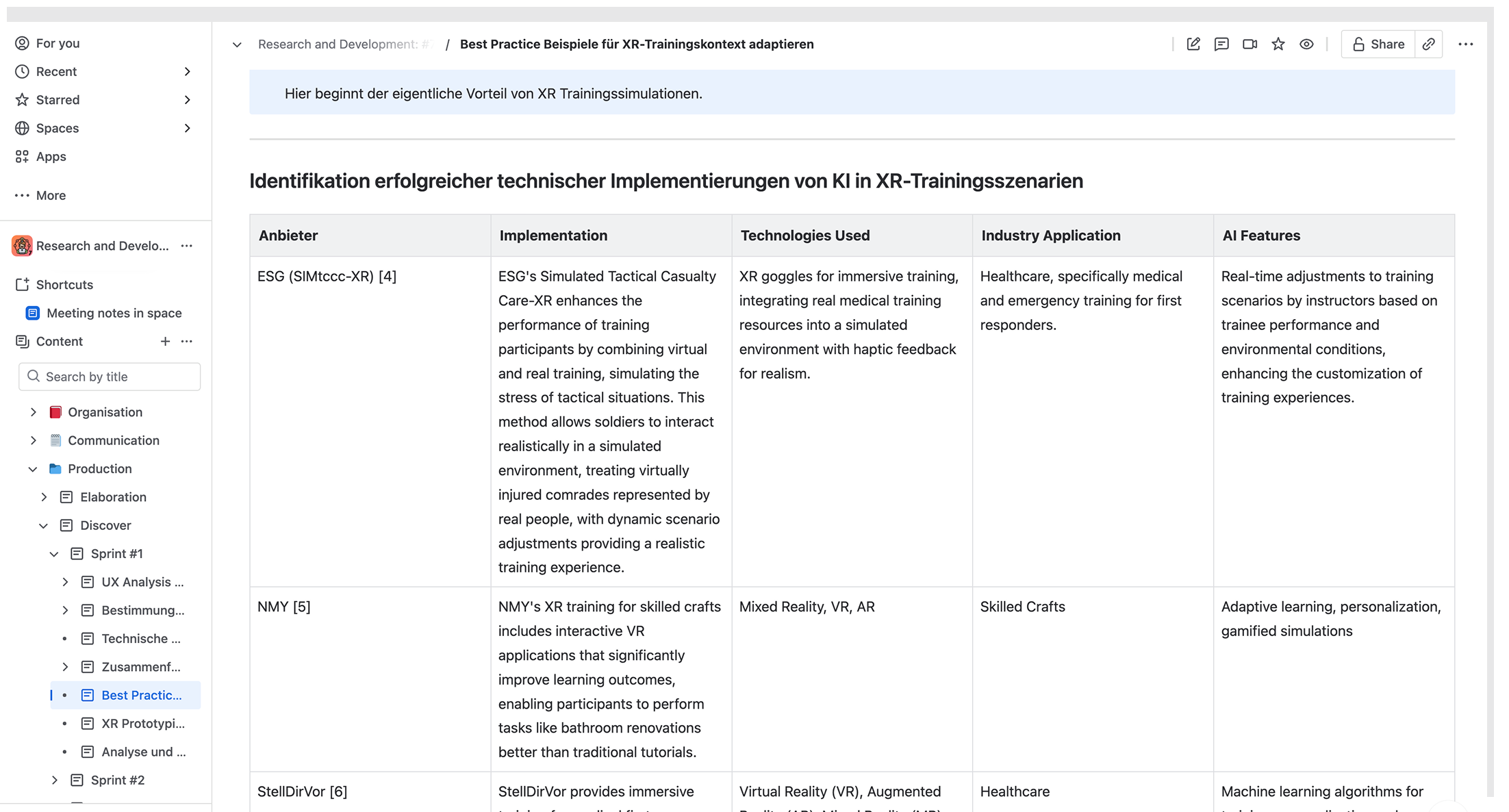
The Design Studio Workshop as a catalyst
To fully harness the potential of AI in XR environments and design personalized training experiences based on individual learning preferences that sustainably boost learning motivation, we decided to conduct a Design Studio Workshop.
In this creative format, we combined divergent and convergent thinking to generate innovative ideas in a short amount of time and to further develop a shared vision.
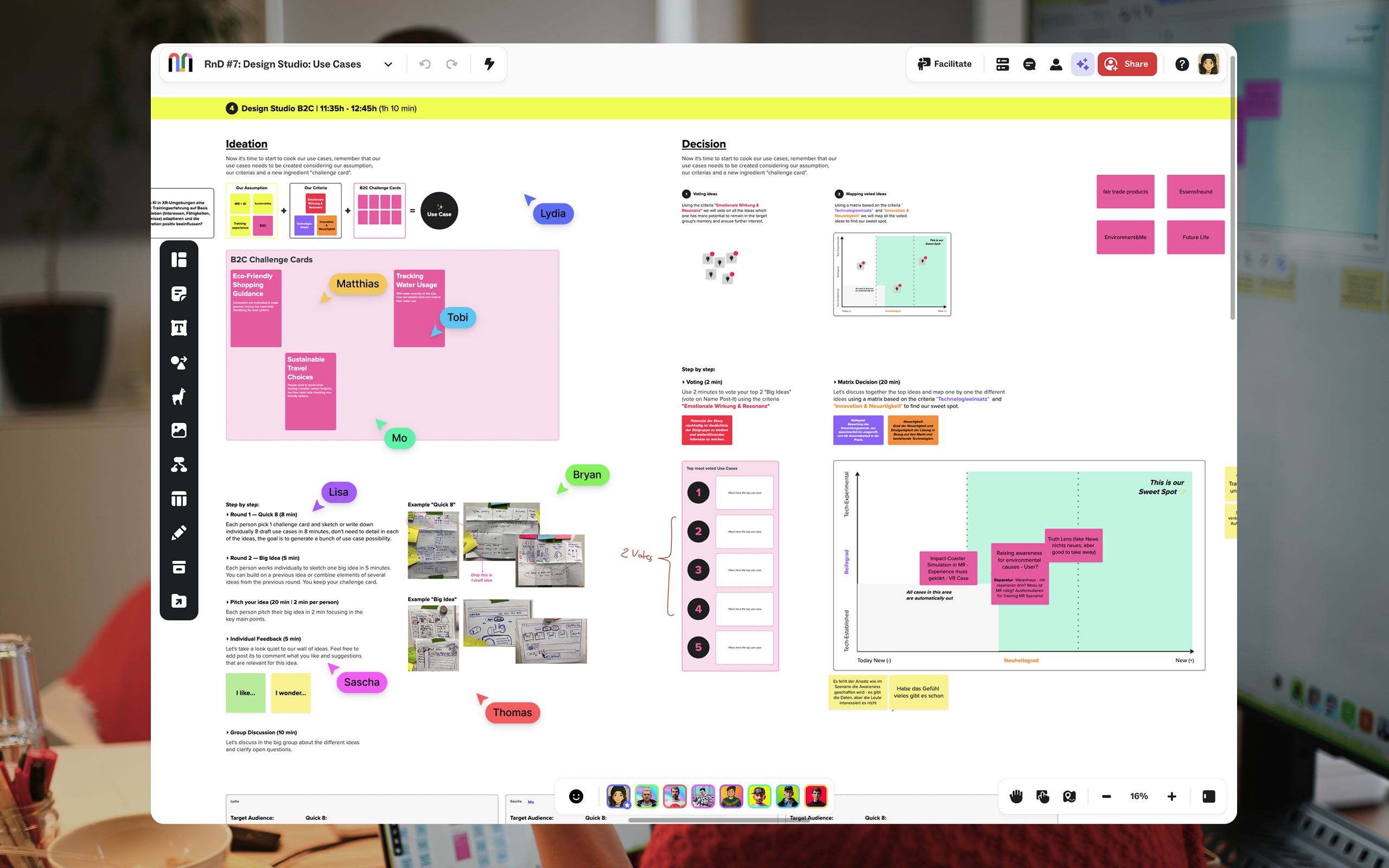
From Idea to Application
The result? Concrete approaches that advance our research in a practical way – with a clear focus on user needs and the optimal use of AI in immersive learning environments.
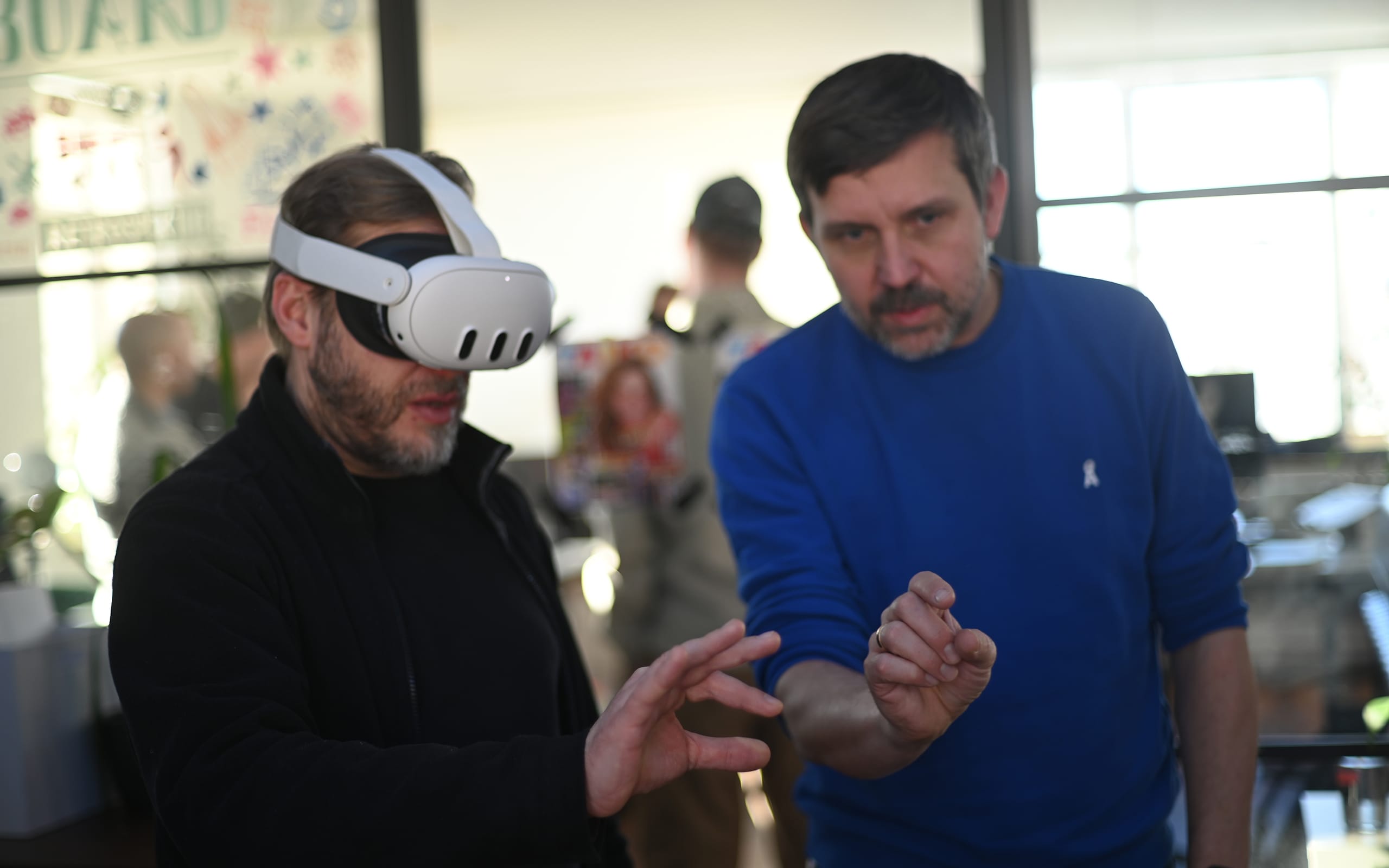
Final question: Who adapts to whom?
How can immersive AI and XR technologies be used to create individually tailored and consistently motivating training content that adapts to the users – rather than the other way around?
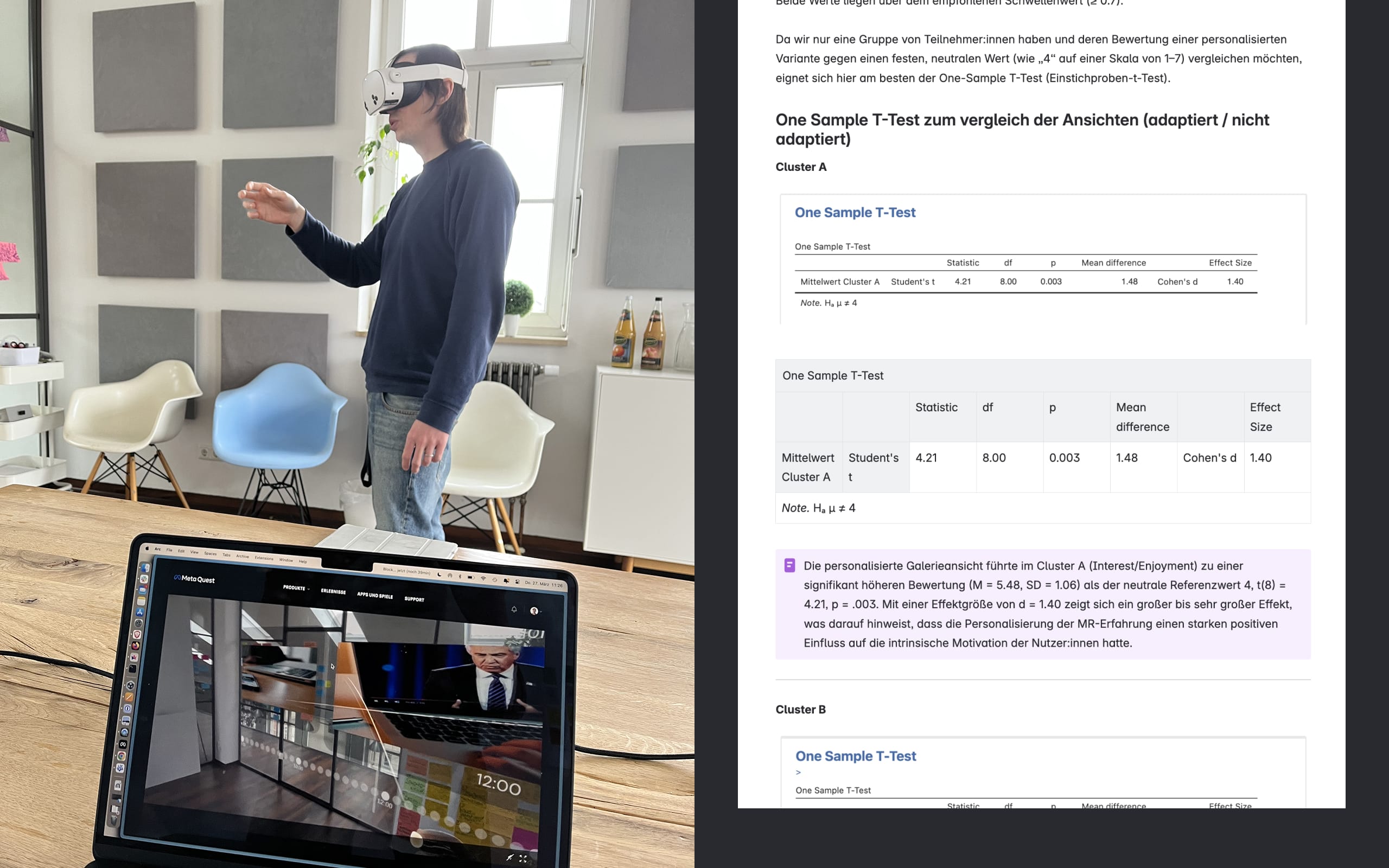
“When learning feels like it’s yours – that’s when AI finally does what it’s supposed to.”
Lydia Amaruch - UI/UX Designer
Step by step towards success
Building seamlessly on the initial insights, we launched our first empirical testing phase, in which a prototyped version of our envisioned MR application was examined by a group of specifically selected young participants. The feedback – particularly regarding the personalization of the training experience – proved highly valuable and informed the subsequent revision of the initial prototype.

Testing, testing, testing...
In a subsequent test involving 30 digitally savvy participants (aged 18–44), key factors for individualized learning in the context of AI-driven adaptation were identified. Skills emerged as the strongest motivational factor: learners benefit most when tasks align with their abilities and adaptive learning paths respond precisely to their level of knowledge. Interest-based learning further enhanced motivation, particularly among younger users who respond strongly to emotional engagement through personal topics such as music, sports, or gaming. Equally important is the contextual relevance of content — learning modules must be available at the right moment to create genuine value.
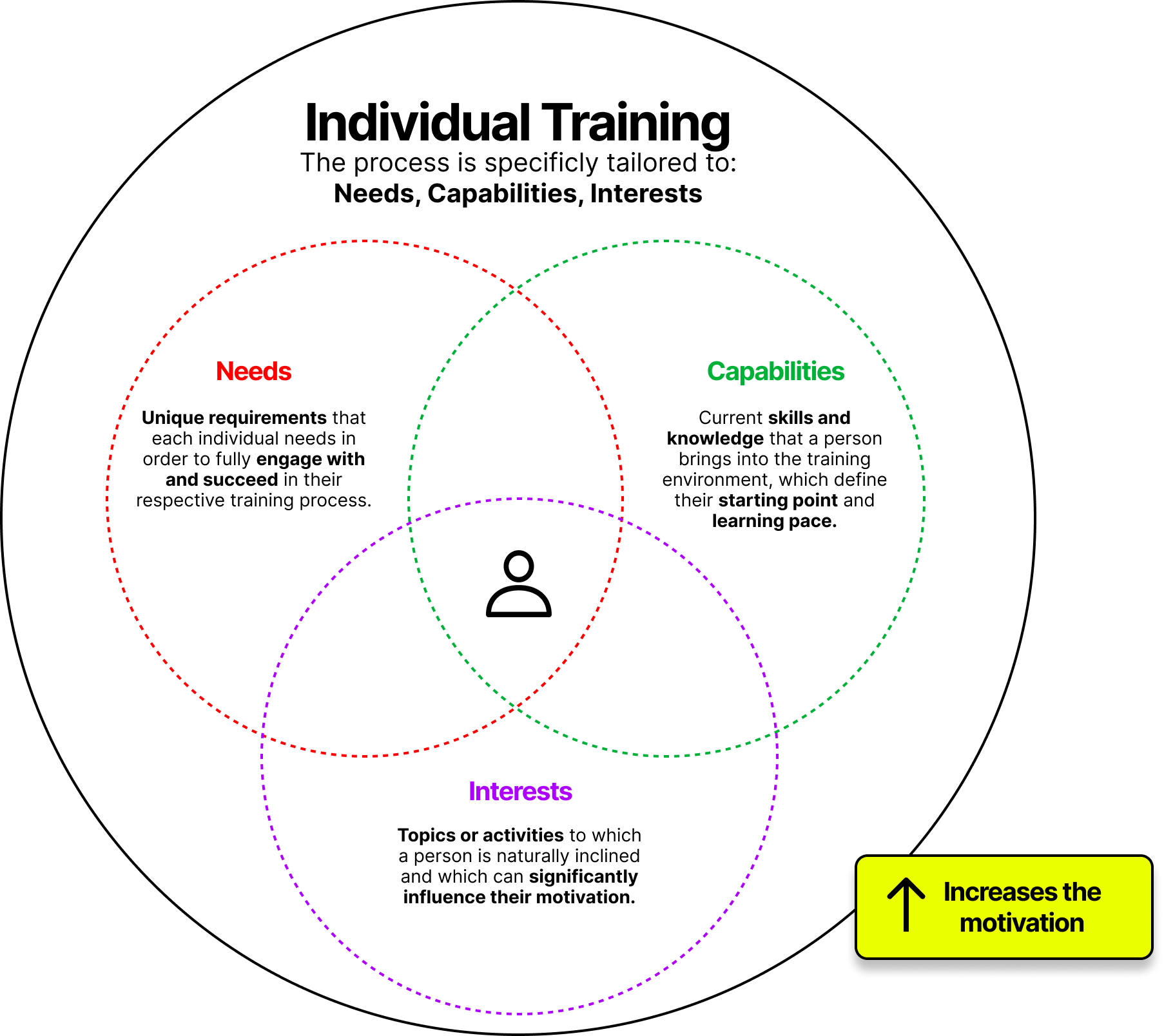
Core functionalities in focus
The results directly informed the further development of the core functionalities of our MR app regarding the prevention of disinformation. In addition to integrating environmental realities and users’ emotional connection to them into the training process (semantic spaces), the early detection of personal biases was identified as a crucial feature (bias scanner). Furthermore, the ability to capture real-time data throughout the training process was recognized as a true game changer, enabling continuous training.

Outlook and next steps
The insights gained throughout the research process now form the foundation for future developments. Our goal is to further refine the prototype and perfect the integration of the identified core functionalities, creating a highly personalized, motivating, and technologically forward-looking training experience. The combination of semantic spaces, bias detection, and continuous data integration not only opens up new possibilities for adaptive learning environments, but also establishes a new standard for ethically informed and user-centered design in MR-based training. In doing so, our project contributes to the advancement of immersive learning technologies and lays the groundwork for sustainable educational innovation in an increasingly interconnected world.